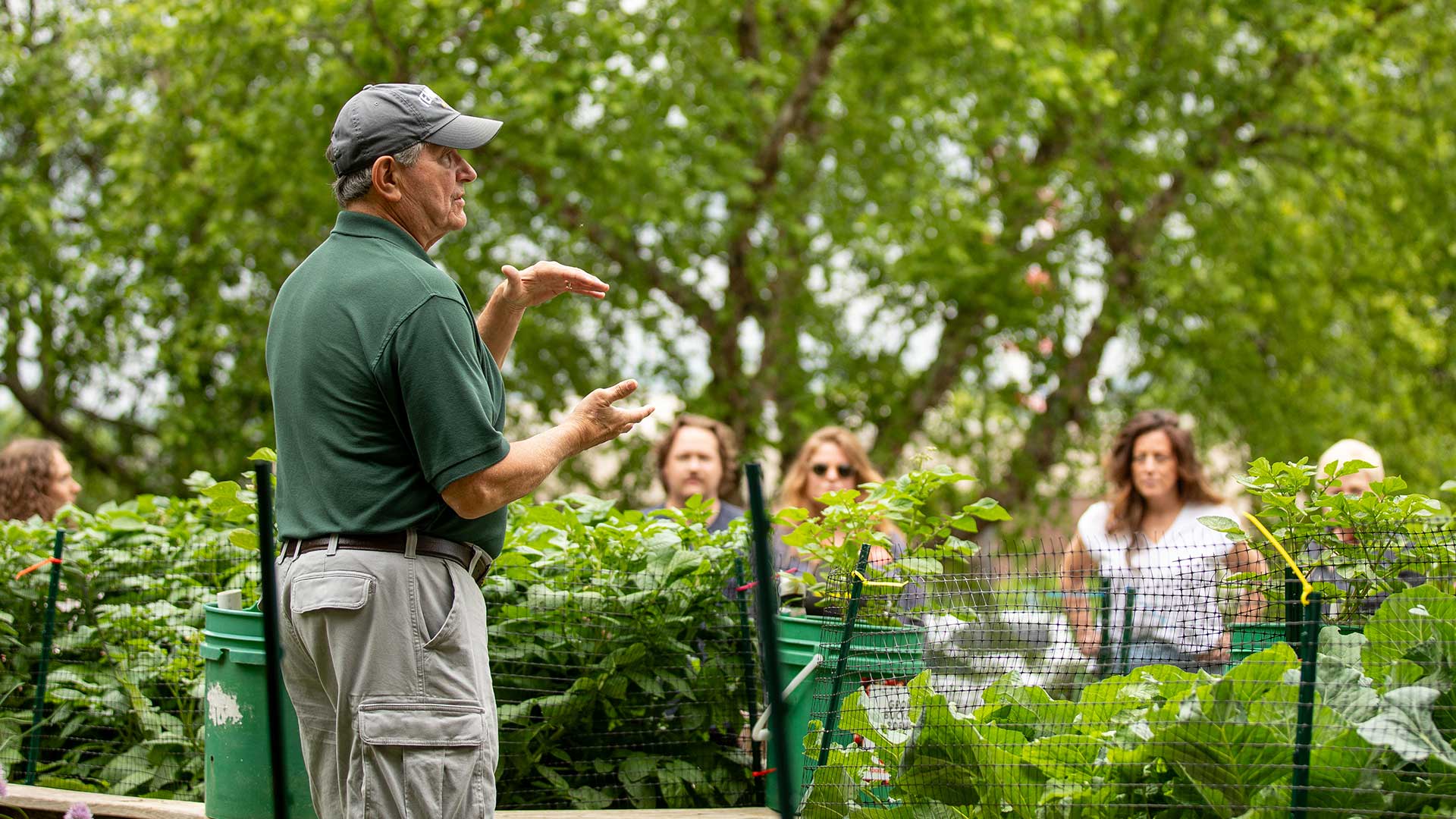Listen to this story
On this spring Saturday, Master Gardeners of Hamilton County are in their element, surrounded by people and plants.
At the annual “Master Your Garden Expo,” patrons stop by vendor booths selling various plants, garden tools and decor, bluebird houses, crafts and all kinds of things to appeal to the experienced or novice home gardener. There’s horticulture information, too. Educating residents about gardening and lawn care is the purpose of master gardeners.
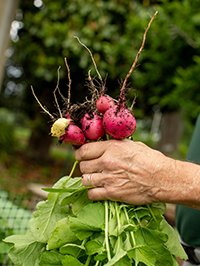
Laurie Dworak, who became a certified master gardener last year, commiserates with a woman who comments on a poster about the right and wrong ways to mulch around trees—mulch piled up like a volcano around the trunk is a no-no because it can cause damage to the bark.
“Our motto is, ‘We teach you how,’” Dworak says, telling the visitor about what master gardeners do. “If you want a deeper dive, there’s the Master Gardener class.”
With the increasing number of people moving to Tennessee from other states and the surging popularity of home gardening post-pandemic, the Tennessee Extension Master Gardener program is growing. UT Extension oversees 40 Master Gardener groups in more than 50 counties. (Some groups include adjoining counties that don’t have a Master Gardener program.)
Master Gardener participants are volunteer horticulture educators. They were established to literally be an extension of Extension. Across the U.S., landgrant universities, such as the University of Tennessee, have Extension programs that provide research-based information about agriculture, family and consumer science and community development to state residents and coordinate 4-H and youth development activities. The idea for Master Gardeners came from an Extension agent in Washington state in 1972. Davidson County piloted the first Tennessee group in 1986.
“We don’t have enough people power to answer all the questions and reach all audiences. Master gardeners help us expand our reach,” says Natalie Bumgarner, an associate professor of plant sciences and Extension specialist who has overseen the statewide Master Gardener program since 2014.
New classes of interns—master gardeners in training—begin in the winter and finish in the spring. Bumgarner oversees the curriculum taught to all interns in the form of printed materials and videos, shown either during classes or watched at home. An Extension agent in each county is the liaison and supplements each week’s lesson or invites a guest lecturer.
Topics include basics of soil and botany, integrated pest management, vegetable gardening and backyard fruits. Interns become certified after completing the class along with volunteer and continuing education hours, and in the following years, master gardeners continue to volunteer and learn to remain certified and active in their county group.
In 2023, 629 Tennesseans completed the 40-hour Master Gardener training class, and 2,856 master gardeners across the state reported 200,504 volunteer hours, equating to an economic value of more than $5.6 million.
Demand was high this year to get into intern classes. Shelby County, with the largest Master Gardener group at nearly 400, had 200 people apply for the 45 spots in the intern class. To fill the spots, master gardeners interview applicants.
“People really want to be part of this program because of our reputation, to learn horticulture and give back to their fellow citizens,” says Chris Cooper, the Extension agent overseeing Master Gardeners and the host of The Family Plot TV show about gardening. “We want to make sure the program is the right fit for them.”
What is the Tennessee Extension Master Gardener Program?
The Tennessee Extension Master Gardener program seeks to improve the lives of Tennesseans by promoting environmental stewardship, noncommercial food production and human health and well-being through residential and consumer horticulture education delivered by a dedicated and skilled volunteer network.
Contact your county UT Extension office to learn more about Master Gardener classes: https://mastergardener.tennessee.edu/
Many master gardeners are retirees, but growing numbers are younger people with full-time jobs. There are even high school students taking classes in Davidson, Greene and other counties this year. Counties such as Hamilton and Shelby alternate between day and night classes each year to allow for more flexibility.
“I’m glad to see there is a mix of ages,” says Hamilton County’s ag Extension agent Haley Treadway (Knoxville ’19), who has worked with Master Gardeners for two years. “We’re trying to do a better job of being inclusive and accessible.”
While Master Gardener interns take classes and participate in continuing education, they don’t have to be gardening experts. Interns are taught where to find information and how to answer questions. UT Extension publications on horticulture topics are available to the public online.
And, because master gardeners represent UT Extension and the Institute of Agriculture, they learn to set aside their personal gardening views. That’s important in counties, such as Greene, where there are some people interested in the homestead movement with organics and no pesticides and others who have a more traditional view of gardening or lawn care.
“It’s about respecting one another’s seat at the table,” says Melody Rose (Knoxville ’16), an Extension agent in Greene County, whose background includes tobacco farming.
Master gardeners may be found at the county fair, a farmers market, garden show or plant sale. Attendees can ask them anything related to gardening. Some counties have phone hotlines or emails to send in questions. Many counties have demonstration gardens and hold classes for residents or activities for children.
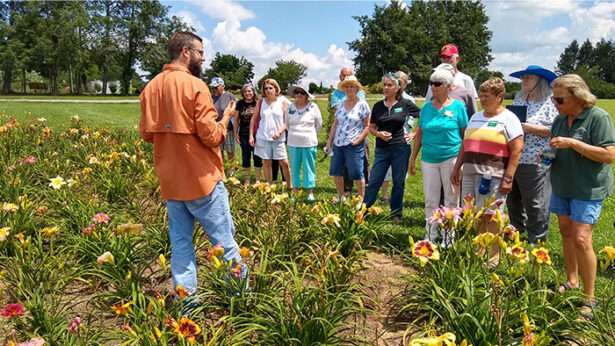
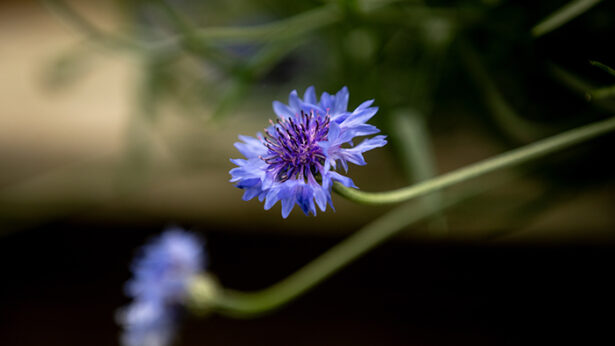
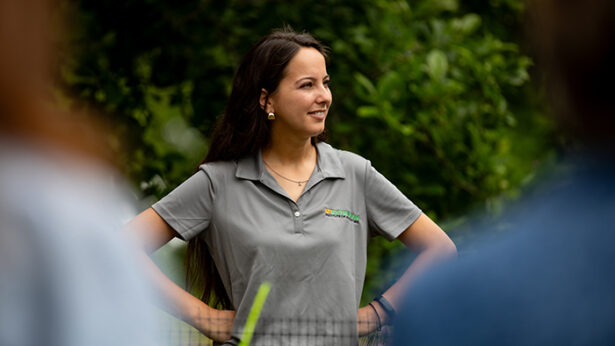
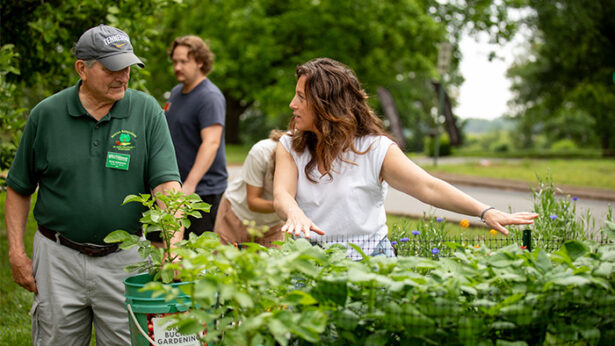
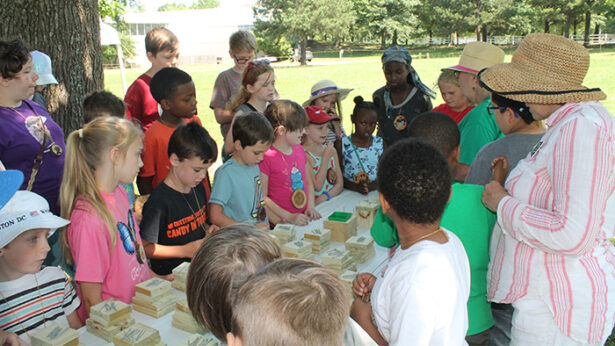
CLICK TO EXPAND IMAGES
In Nashville, the Davidson County Master Gardeners program focuses on urban food production with container and patio gardening and hydroponics.
“We don’t have a lot of land for farming,” says Davidson County Extension agent Amy Dunlap, who is originally from Orlando, Florida, and worked for Disney growing hydroponics. “Whether you live in a condo or apartment, you can still grow plants without access to land.”
Each county adds a local flavor to its organization. Cumberland County Master Gardeners program is credited with creating what became the third location of the UT Gardens in Crossville. Together, the UT Gardens in Knoxville, Jackson and Crossville make up the State Botanical Garden of Tennessee. Cumberland County’s group started in the early 1990s, and the Plateau AgResearch and Education Center—one of the 10 UT AgResearch units across the state—provided land for Master Gardener interns to create their own garden as a class project, and faculty research trials also started there. Eventually, the garden became so large a committee was formed to decide what to do with requests to plant more.
“The beauty of it is the seamless relationship between AgResearch, Extension and Master Gardeners,” says Gregg Upchurch (Knoxville ’87, ’95), the Extension agent who has worked with the group since 2003.
Master Gardener interns in Greene County have several community outreach projects, including the once-abandoned New Hope Cemetery of a church founded by former slaves, which they worked to restore and now conserve for its significance to African American heritage.
The Shelby County Master Gardeners club hosted the 20th annual Spring Fling plant sale that featured speakers and demonstrations. Master gardeners grew some 500 or more plants from seed to sell. They continue that outreach with their award-winning Collierville Victory Garden, and they taught what Cooper calls future master gardeners of tomorrow during a half-day camp in June for ages 8-11 called Junior Master Gardener.
Master gardeners are always learning, many times from each other. Some members specialize in certain areas like native plants, pollinators, orchids and roses and then teach classes to other master gardeners and the public.
“My passion is bat conservation,” Dworak, at the Hamilton County expo, tells the visitor.
Hamilton County members recently went on a field trip to learn about compost at a large-scale facility nearby. The group encourages members to get to know each other by carpooling. After all, they already have something in common. As the group’s president Shirley Stewart tells interns, “You come for the plants, but you stay for the people.”
Nurture Your Own Green Thumb
The Tennessee Extension Master Gardener is just one program through UT Institute of Agriculture that helps Tennesseans with home horticulture.
- Check out the UT Horticultural Team’s website for all things horticulture: https://uthort.tennessee.edu/.
- Attend UT AgResearch Field Days near you: https://agresearch.tennessee.edu/field-days/.
- Visit the UT Gardens in Knoxville, Jackson and Crossville and sign up for the newsletter as a member: https://utgardens.tennessee.edu/.
